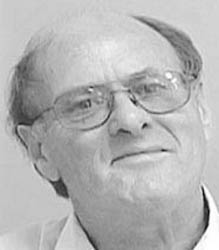New middle-class expats in Cayman often arrive with stars in their eyes, expecting a perfect tropical paradise. The facilities are excellent, the wages are high (which means that savings are high by home standards), and the sun, sea and sand are indeed as per the brochures. The social life is whatever you want it to be. There are more burglaries and robberies than one expects in a community of 50,000, but you have to be unlucky to be personally affected. Just remember to lock your doors and windows.
However… Like all paradises, ours has a venomous serpent – and it feeds on expatriates. I call it the Immigration Monster. It’s an all-powerful beast that controls the lives of all Cayman residents to an extent that America’s Homeland Security bureaucracy can only dream of. It comprises our government’s Immigration Department – the largest state agency, stuffed with native Caymanian xenophobes – and several related executive committees of political cronies who are also mostly xenophobes.The Monster is every expat’s enemy. Its presence is harmful to every Caymanian, too, though few of them realise how much the Monster adds to our local cost of living. As in all places where protectionism is in force, productivity is poor; and social tensions between expats and natives are kept under strain by both an affirmative-action program that is permanent and an indentures system that hearkens back to post-slavery times.
At a tyre-repair shop in town, once, I got into casual conversation with a Jamaican man while we waited for our repairs to be done. We swapped horror-stories about the Monster and its injustices – the automatic topic of choice for expats who don’t know each other – until a young woman began drifting towards us. “My girlfriend’s Caymanian”, he said quietly, and we talked about cars. When she wandered off again we took up the original topic where we’d left off.
The situation is slowly improving, but almost imperceptibly slowly. Every four years, all the candidates in our general elections promise to be nastier to expats than their opponents. (We are a British colony, and the British government requires that all serious candidates be native Caymanians. I know of only one exception in my 34 years here – and he, a venerated former Financial Secretary of Jamaican-Indian origin, was told by a rival at a public rally to “go back to India!”)
It is a general rule that every native Caymanian has the power to deport every expat. Fortunately, the power is not exercised very often; the situation would be intolerable if it were, and our prosperity would collapse for want of foreign residents. All the same, the awareness of the power severely inhibits freedom of speech among the expat communities. Prudently, newcomers to Cayman should refrain from publicly criticising any Caymanian person or thing or idea or custom – until they are familiar with the lay of the land.
New expats of a humanitarian persuasion must be particularly careful not to defend the interests of the Islands’ unskilled migrants in domestic service. If your hired domestic servant’s pay-cheque bounces, protesting to her employer will only get her fired and deported. (We made that dreadful mistake once.) She knows the risks, and even with an occasional missed payday she is better off here than in her home country where there is no employment and no state benefits. All you can do is grumble anonymously on the local web-forum – and even then you’d better hide her and your identity as best you can!
Censorship? Oh, yes – but that’s a whole nother column’s worth!
Gordon Barlow has lived in Cayman since 1978. He was the first full-time Manager of the Cayman Islands Chamber of Commerce (1986-1988) – a turbulent period when the Chamber struggled to establish its political independence. He has publicly commented on social and political issues since 1990, and has represented the Chamber at several overseas conferences, and the Cayman Islands Human Rights Committee at an international symposium in Gibraltar in 2004. His blog www.barlowscayman.blogspot.com contains much information on life in Cayman, written from the point of view of a resident and citizen.

